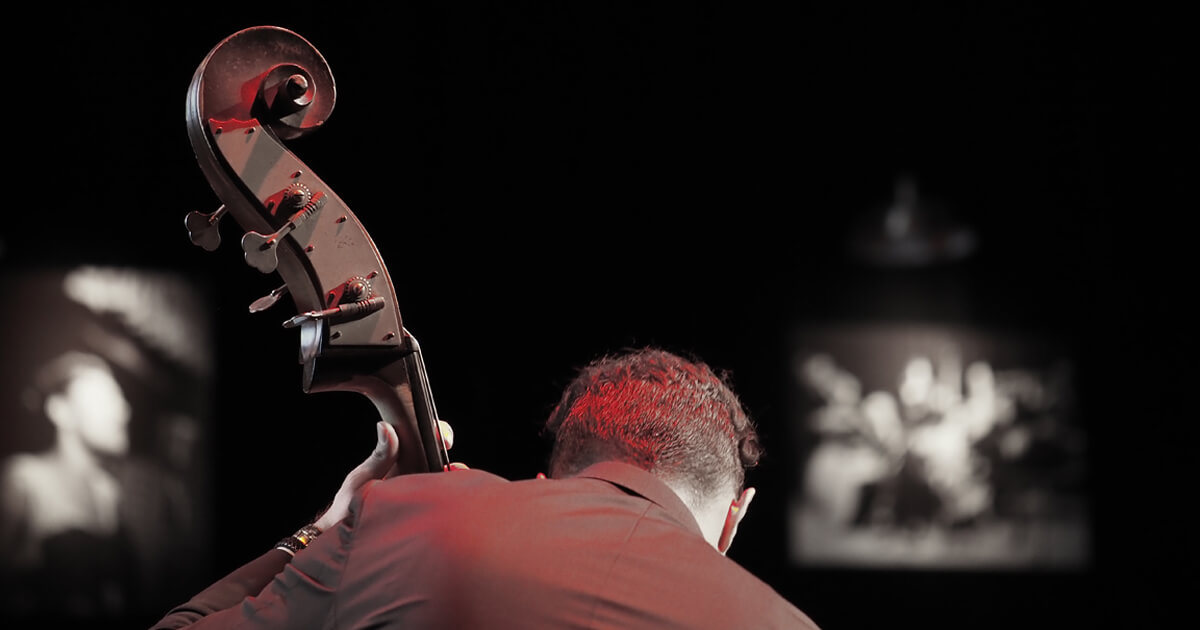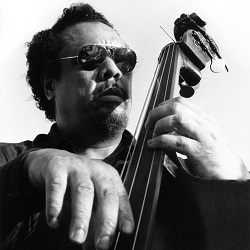
The Serious and Wild Side of Jazz
Neal Caine, Charles Mingus and how to break through
This month, the Jazz Room covers Charles Mingus, considered one of the greatest jazz musicians in history. Recognized with the Grammy Lifetime Achievement Award and his own US Postal Service stamp, the Library of Congress describes Mingus’s collected scores, recordings, correspondence and photos as “the most important acquisition of a manuscript collection relating to jazz in the Library’s history”.
Growing up in the 1930s as a product of an eclectic ethnic background, his musical genius was almost lost in the suppression of racial discrimination. He was not allowed to play his cello in a formal setting because of his color, and his brilliance only discovered when allowed in to a jazz band to play bass. A passionate man, he became active during the Civil Rights Movement. Much of his music, composition, and other endeavors embodies those struggles.

Mingus was known as a prodigy composer, band leader, bass performer, and also a “wild guy”, notes this month’s performer Neal Caine. Mingus’s eccentric nature is one reason Caine admires him. Caine believes that mix of serious mastery of his art and let loose attitude are important for a good jazz musician, and part of his own personal motto.
Neal “Sugar” Caine is one of the premier jazz bassists on the scene today. His dynamic style is punctuated by a huge sound, a great feel, and masterful technique. He has been the chosen bassist to an array of stars, from Harry Connick, Jr., Diana Krall, and Gladys Knight, to the venerable jazz legends Betty Carter, Elvin Jones, and the entire Marsalis family.
Neal Caine speaks to the amazing experience of playing for current greats like Diana Krall and Harry Connick Jr. But when asked about his most impactful experiences, he reflects that the older performers are “cut from another cloth”.
At age 21, he was a bass player for the Ellis Marsalis Trio. He came home one evening, walked into his building and saw an envelope with his name on it, sitting by the mailbox. Inside he discovered a plane ticket to Zurich, for the next day. In the 1990s with no cell phones, he tried calling anyone he could think of to figure out what this ticket was all about. He finally called is mom to ask what to do. She responded “You better go. You can always fly back.” He discovered it was from Elvin Jones, needing a bassist for a show the next day.
He describes the experience that next day as surreal and mind blowing, and Elvin as his hero on the drums. From there he joined the Elvin Jones Jazz Machine.
Caine and Mingus’s lesson for all of us is that you never know when something might happen for you. A breakthrough can be there for anyone. The key is to be ready when that nondescript letter is sitting on your front door.
Don’t miss more of Charles Mingus performed by Neal Caine, this month in The JAZZ ROOM.